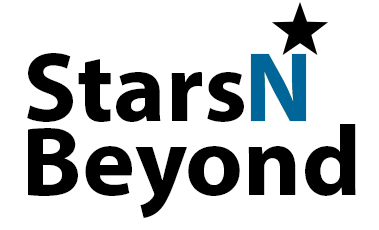STUDY IN REPUBLIC OF IRELAND
Academic Year
September – June

- Ireland gained independence from United Kingdom (UK) in 1922 therefore, it has inherited its education system from the UK. Ireland has seven universities which offers bachelor and masters degrees. Ireland is known for its history, culture, vibrant nightlife, valleys, and rugged coastline. Being an Anglophone country and an EU member state makes Ireland one of the attractive study abroad destinations for many students from around the globe. Most students come here from North America, UK and Europe.
Tuition Fees
In Ireland tuition fees are based on your country of origin, if you are from the EU, the EEA, Switzerland or the UK, then you will pay fees at the same rate as Irish citizens. These fees are set by the Irish government and approximately US$3530.
The fees for international students vary greatly, from between US$11,670 up to US$41,000 depending on the course, the level of study and the length of the program. Undergraduate fees are payable annually or in per-semester instalments. Postgraduate fees are generally charged as a one-off cost as postgraduate programs are normally one year.
Grants & Scholarships
The majority of international students in Australia pay full fees for their studies, However, there are a number of scholarships available to assist students with the cost of their education. The Australian government, education institutes and various other organizations offer Australian scholarships to international students. A lot of programs of Australian universities offer their own scholarships as well. Some of the Australian Scholarships available to eligible international students are:
-
-
- NUI Galway International Student Scholarships
- DCU International Student Scholarships
- UCD USA scholarships
- UCD Global Excellence Undergraduate Scholarship- USA
- International Student Scholarship – Waterford Institute of Technology
-
Housing & Living Cost
The average cost of living in Dublin excluding rent is about US$1060 per month. Finding housing can be difficult. You will need to submit the receipt showing that you have paid the security deposit and the first month’s rent with your visa application.
For one-bedroom apartment in a city center you will pay approximately US$774 – US$1989 The final figure depends on where you decide to live, how often you eat out and shop, etc.
Admission application Process
Undergraduate
Ireland nationals, the EU, the EEA, Switzerland or the UK or a resident in one of these countries, do apply directly through the Central Applications Office (CAO). Applications can be submitted up until 5.15pmGMT on 1 February in the academic year prior to beginning studying. The fee is US$47. Late applicants have to submit a paper application which can be submitted until 5.15pmGMT on 1st May. The late application fee US$95.
The application process for the non-Irish, EU, EEA, Swiss or UK nationals, is a little more complicated. Applicants need have Irish Leaving Certificate Examination or the International Baccalaureate (IB). If you don’t have either of these qualifications, you’ll need to sit the Irish Leaving Certificate Examination. If you are not from an anglophone country you will also need to submit evidence of your English abilities. An IELTS certificate is normally enough. Bilingual Anglophone countries, like Canada, aren’t exempt from this requirement.
There’s a separate entry exam (HPAT) for medicine courses if you’re not from Ireland or the UK.
Postgraduate
Postgraduate studies (Master’s degree, PhD) are far simpler and, in some cases, more informal. Once you have decided that which school you want to study, we can guide you through the application process. You’ll need to submit your academic transcripts, a letter of motivation, proof of identity & residence and possibly your CV. Admission review and decision process normally takes a few weeks.
Depending on the schools, different deadlines are set, but generally the cut-off point, will be in January or February.
Postgraduate applications to medicine courses will need to sit an entry exam called the GAMSAT, including the Irish and UK nationals.
Visa application Process
Students from non the EU, the EEA, Switzerland or the UK, will need an Irish study visa. But Ireland doesn’t make it difficult to get the student visas. Ireland removes a lot of the complications and bureaucracy as, for the most part, the process is handled entirely online. We at Stars N Beyond can guide you through the application process.
You should apply for your study visa at least three months before you plan to arrive in Ireland. We will help you to comb through the list of documentation. You will need to prove your identity, educational background, English ability, employment history and evidence accounting for any gaps in your education, evidence that you have paid at least €6000 (US$7100) in tuition fees before applying. If your course fees are less than €6000 ((US$7100), then you must have paid the full amount, and a proof that you will be financially self-sufficient throughout your studies.
